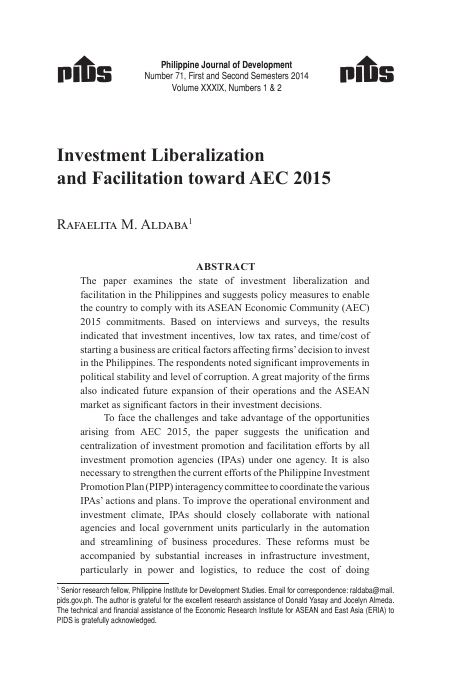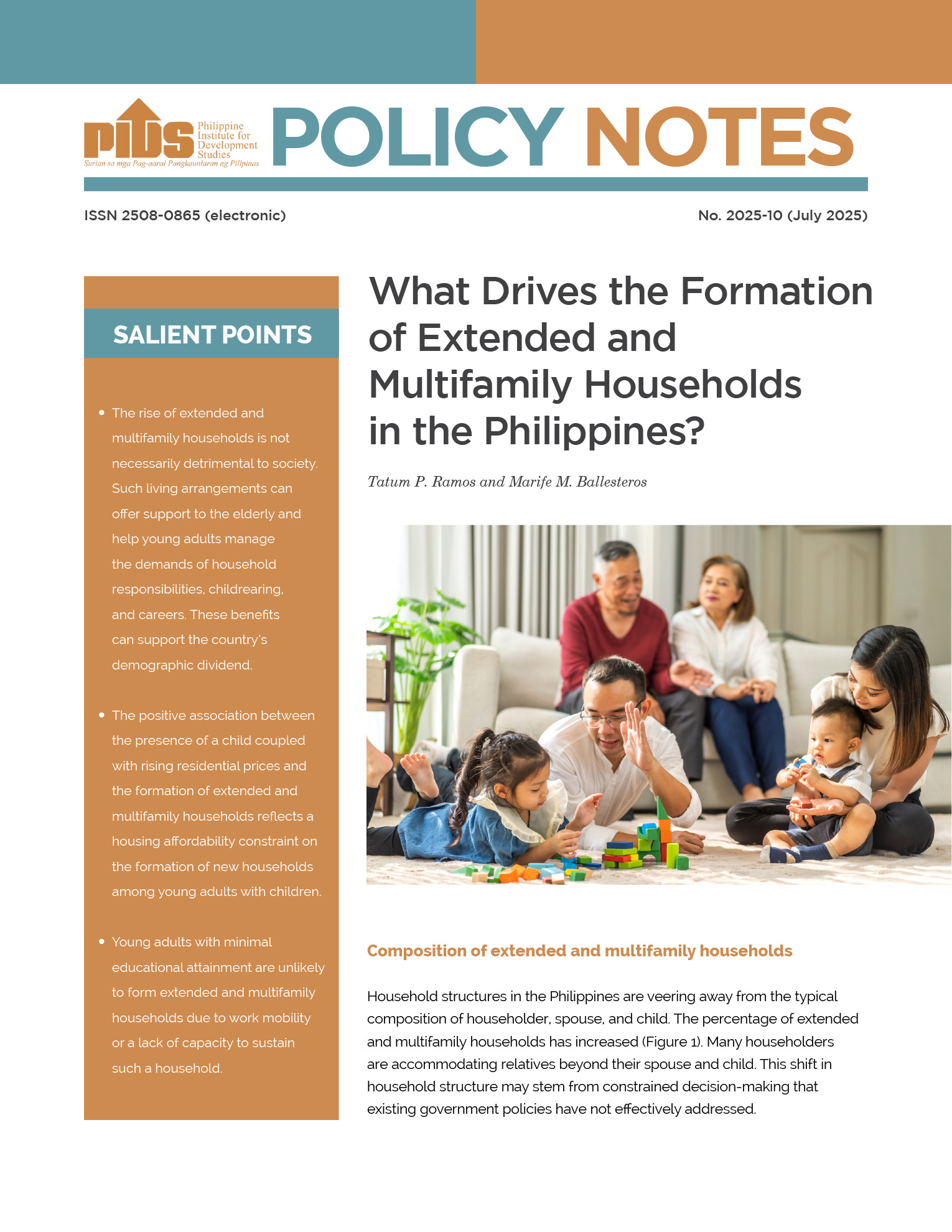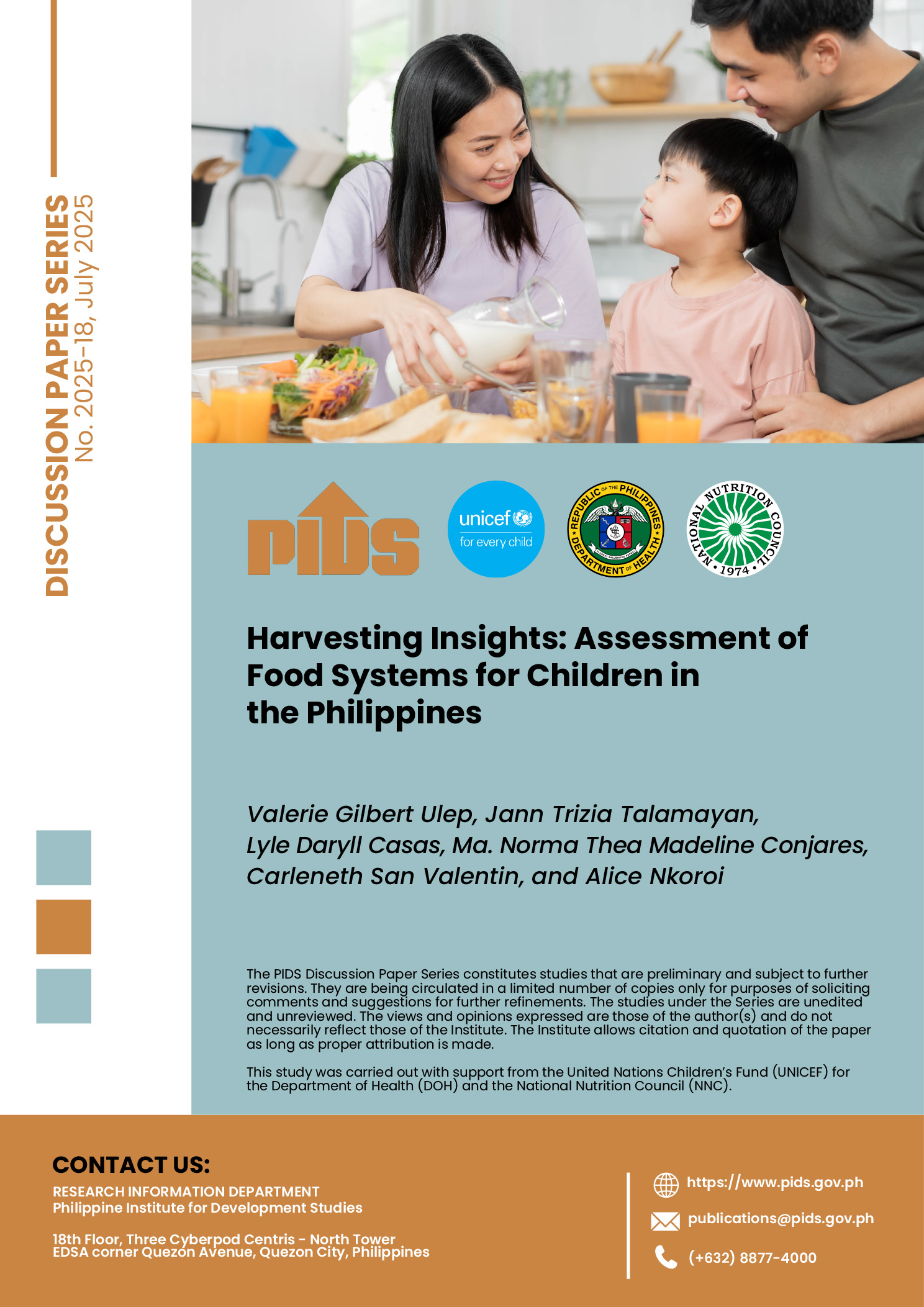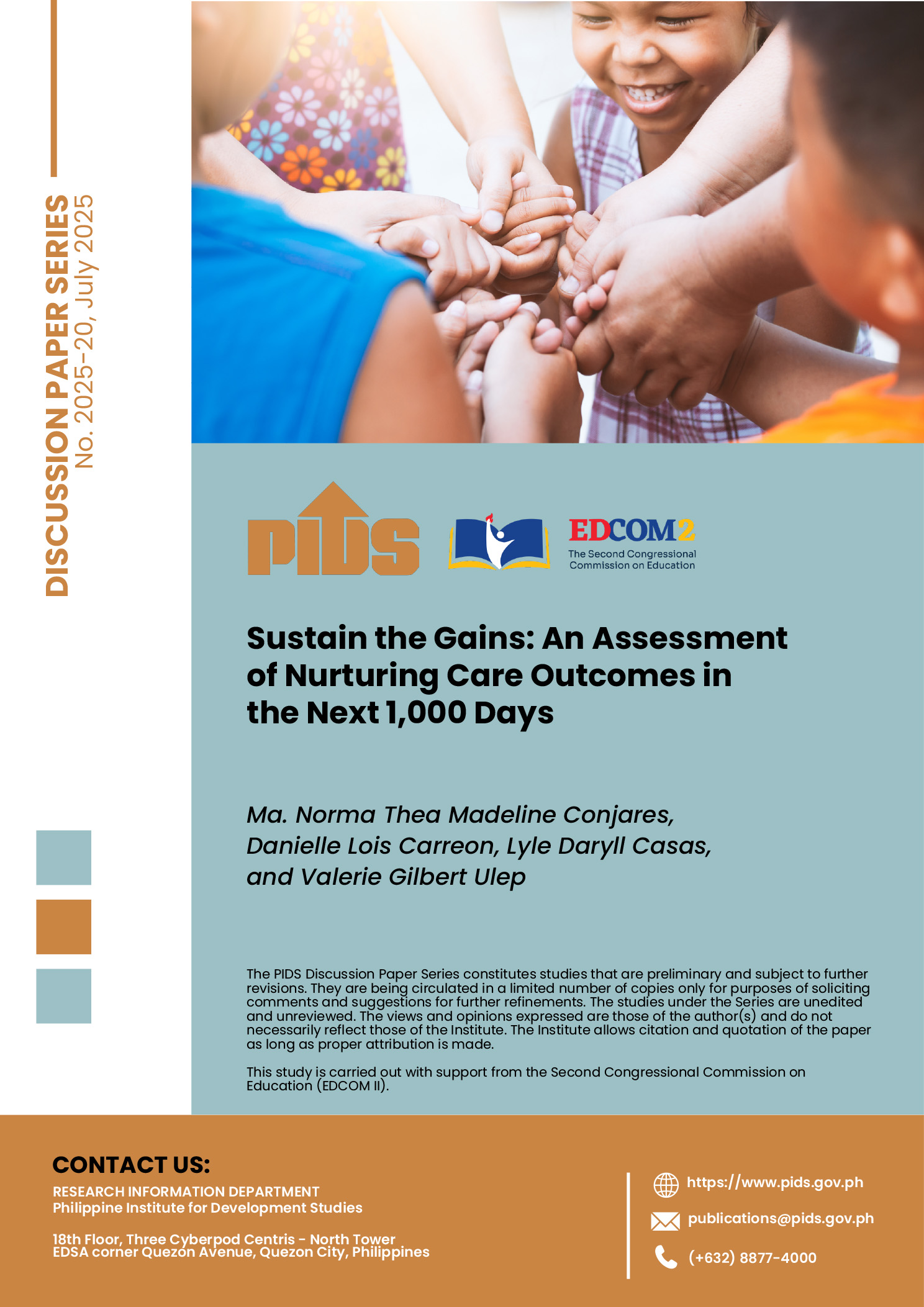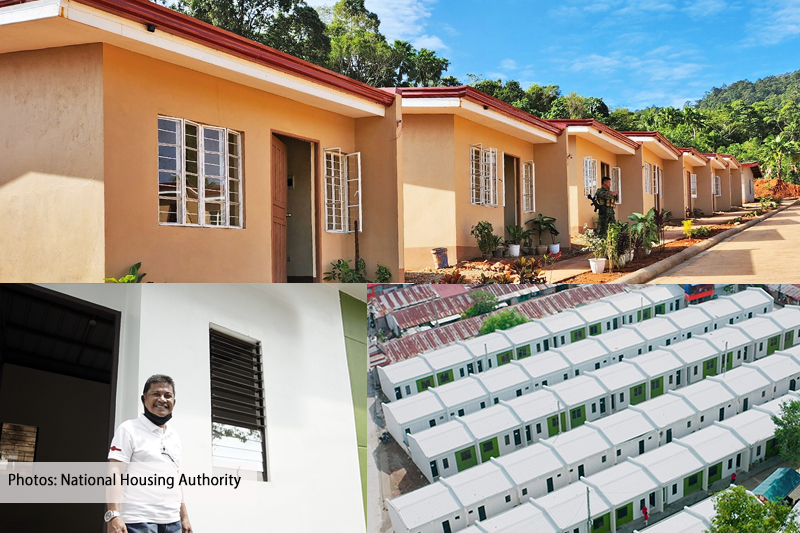The paper examines the state of investment liberalization and facilitation in the Philippines and suggests policy measures to enable the country to comply with its ASEAN Economic Community (AEC) 2015 commitments. Based on interviews and surveys, the results indicated that investment incentives, low tax rates, and time/cost of starting a business are critical factors affecting firms` decision to invest in the Philippines. The respondents noted significant improvements in political stability and level of corruption. A great majority of the firms also indicated future expansion of their operations and the ASEAN market as significant factors in their investment decisions.
To face the challenges and take advantage of the opportunities arising from AEC 2015, the paper suggests the unification and centralization of investment promotion and facilitation efforts by all investment promotion agencies (IPAs) under one agency. It is also necessary to strengthen the current efforts of the Philippine Investment Promotion Plan (PIPP) interagency committee to coordinate the various IPAs` actions and plans. To improve the operational environment and investment climate, IPAs should closely collaborate with national agencies and local government units particularly in the automation and streamlining of business procedures. These reforms must be accompanied by substantial increases in infrastructure investment, particularly in power and logistics, to reduce the cost of doing business in the country. A comprehensive review of the constitutional limitations on foreign equity, particularly the 60-40 rule, should also be pursued.

